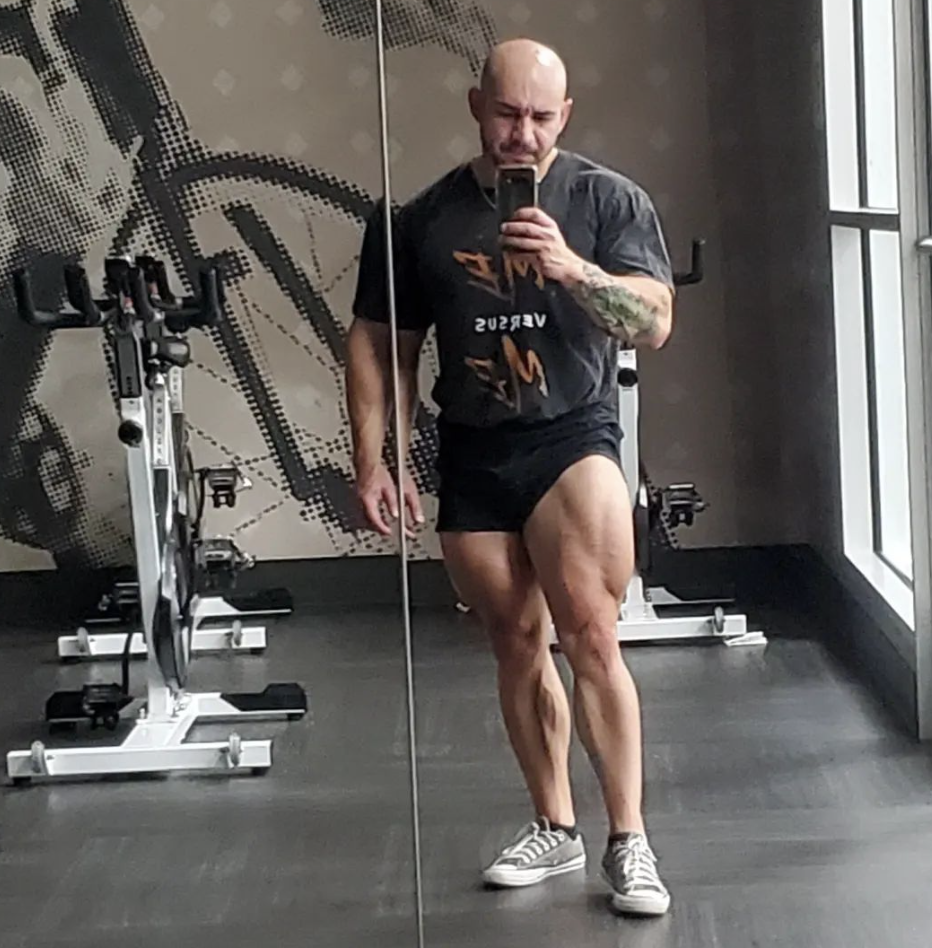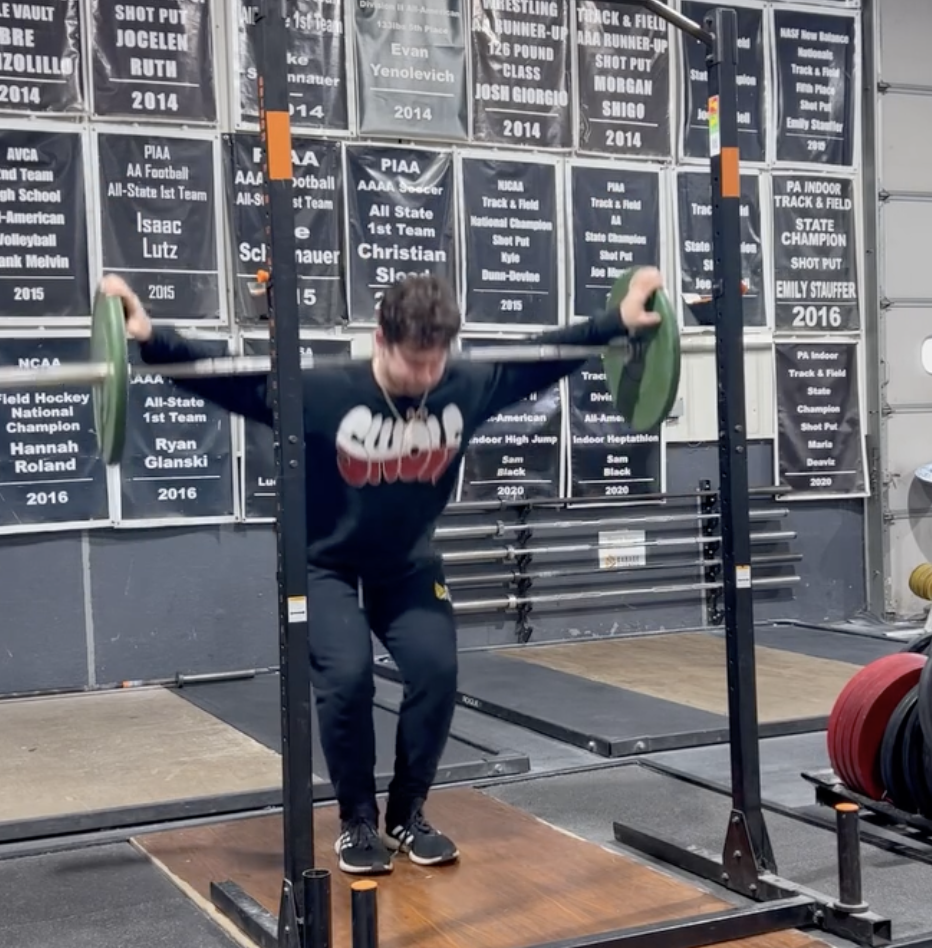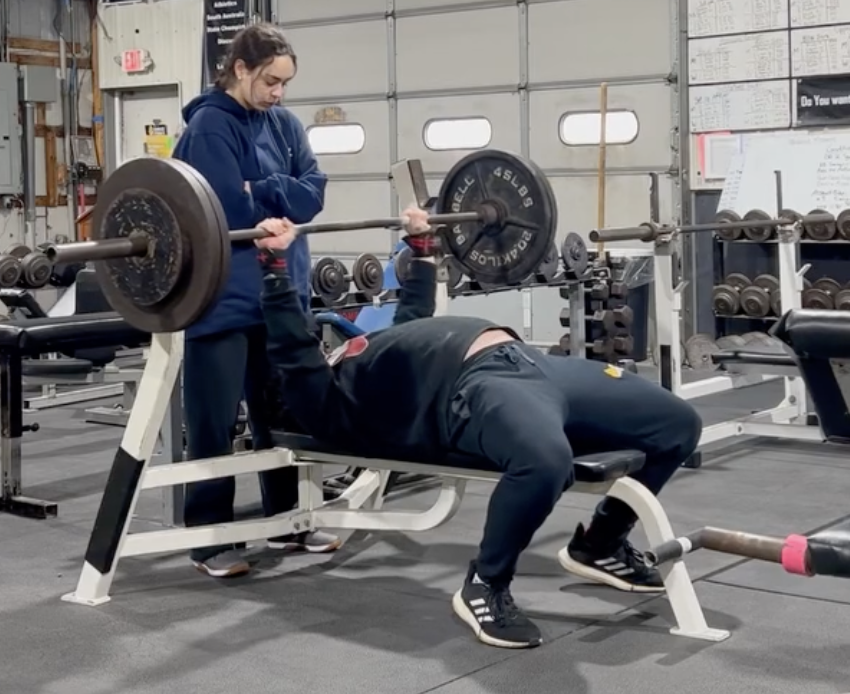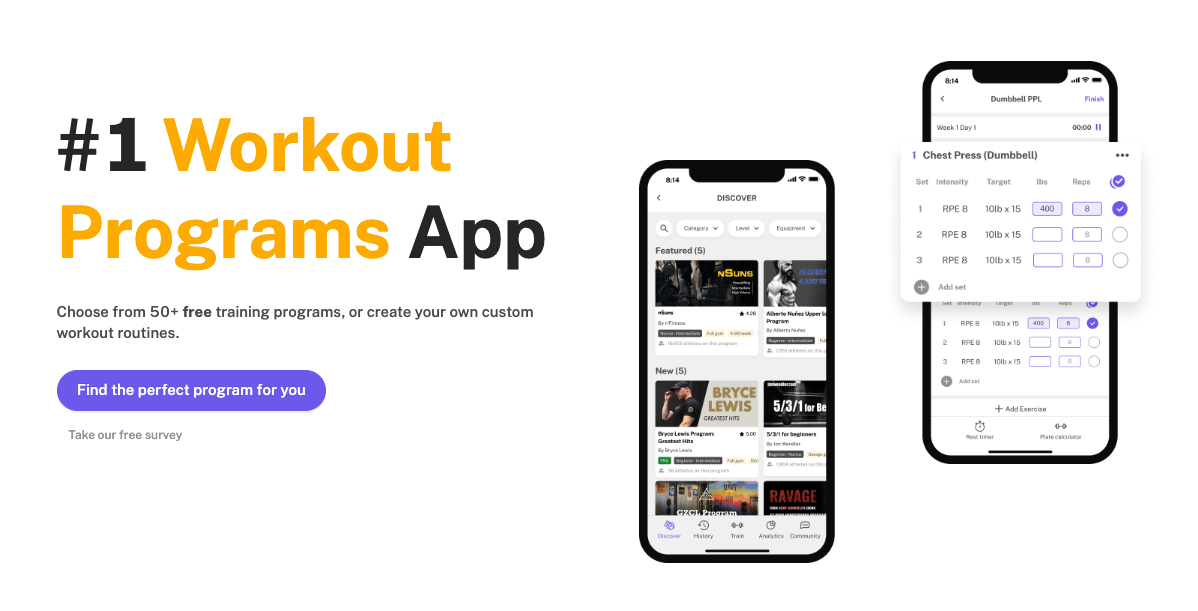Should Athletes Use Bodybuilding Workouts?
Written by the Boostcamp staff
Can bodybuilding help athletes maximize their potential?
Bodybuilding for athletes is not just about building big muscles for to look good on a stage, but bodybuilding for athletes is rather about building functional muscles that help with maximizing your athletic potential in whatever sport you participate in. By understanding the principles of bodybuilding and incorporating specific exercises into your training regimen, you can enhance your strength, endurance, and improve your overall athletic performance.
In this blog, out team at Boostcamp will explore the importance of bodybuilding for athletes, key exercises to focus on, and the benefits of using the exercises from something like a push pull legs workout routine.
So, let's dive in and discover how bodybuilding can take your athletic abilities to new heights.
Understanding Bodybuilding for Athletes

To fully grasp the concept of bodybuilding for athletes, it is crucial to understand the term muscle hypertrophy. At its core, muscle hypertrophy refers to increasing the size of specific muscles, which can lead to improved athletic performance. Unlike bodybuilding for aesthetic purposes, bodybuilding for athletes focuses on muscle growth for functional purposes. By engaging in strength training exercises, athletes aim to stimulate muscle hypertrophy, which ultimately leads to enhanced strength, power, and endurance.
The Concept of Muscle Building and Hypertrophy
Muscle hypertrophy plays a vital role in maximizing an athlete's physical potential. When athletes engage in strength training exercises, their muscles undergo microscopic damage. This damage then triggers the body's recovery process, where muscle fibers are rebuilt and become larger, leading to an increase in muscle mass. Now, you obviously have to get the proper amount of rest and fuel yourself with the right nutrients to get the full advantages of the recovery process.
Strength training, which forms the foundation of bodybuilding for athletes, involves performing exercises that target specific muscle groups. These exercises typically involve the use of external resistance, such as weights or resistance bands, to provide the necessary stimulus for muscle growth. As athletes progressively overload their muscles with increasing resistance, the body adapts by building more muscle mass, resulting in muscle hypertrophy.
By incorporating more bodybuilding style training exercises into their training routines, athletes can achieve functional muscle hypertrophy. This means that the muscle growth they experience translates into improved athletic performance, rather than just larger muscles for appearance.
Significance of Myofibrillar, Sarcoplasmic, and Tendon/Joint Hypertrophy for Athletes

Different types of hypertrophy, such as myofibrillar and sarcoplasmic, have varying impacts on athletic performance. Myofibrillar hypertrophy primarily focuses on increasing the size and strength of muscle fibers, resulting in improved strength and power. It is achieved through heavy lifting exercises, such as compound movements like squats, barbell deadlifts, and bench presses.
On the other hand, sarcoplasmic hypertrophy involves an increase in the fluid volume within muscle cells, leading to enhanced endurance and overall athletic capacity. This type of hypertrophy can be achieved through high-repetition exercises, such as isolation exercises and lighter weights.
In addition to muscle hypertrophy, athletes also need to pay attention to other areas of their body, such as tendons and joints, for proper functioning and injury prevention. By engaging in exercises that promote tendon and joint hypertrophy, athletes can strengthen these areas, leading to better stability, range of motion, and overall performance.
Understanding the different types of hypertrophy and their implications for athletic performance allows athletes to tailor their training programs accordingly. By incorporating exercises that target specific hypertrophy types, athletes can optimize their training for maximum results.
Why Should Athletes Incorporate Bodybuilding Exercises Into Their Training?
Enhancing strength, endurance, and overall athletic performance are just a few benefits athletes can gain from incorporating bodybuilding exercises. Let’s look at how these bodybuilding workouts can take your abilities to the next level.
Enhancing Strength and Endurance
For athletes, engaging in strength and endurance is crucial. Through bodybuilding workouts, athletes enhance both strength and endurance levels positively impacting their overall performance. Improved muscular strength and endurance attained from high volume bodybuilding workouts directly contribute to better athletic achievements. Athletes benefit significantly from the sustained physical exertion and high-performance levels resulting from bodybuilding routines, enabling them to excel in their respective sports. These exercises play a vital role in enhancing an athlete's capabilities, ensuring they reach their peak performance levels efficiently and effectively.
Improving Athletic Performance
Enhancing athletic performance is a key benefit of integrating bodybuilding into training routines. By focusing on strength and endurance, athletes can achieve better results in their respective sports. The competitive edge gained through athleticism enhanced by bodybuilding exercises is invaluable. Incorporating bodybuilding work not only improves overall performance but also contributes to success levels in sports. Optimal athletic outcomes are within reach when bodybuilding is included in the regimen, showcasing its significant impact on performance and success.
Key Bodybuilding Exercises for Athletes

Utilizing compound movements and maximizing range of motion and a good mind-muscle connection in these exercises can benefit athletes greatly. Incorporating strength training with rep schemes suitable for individual needs is crucial. Engaging larger muscles through movements such as regular squats and even isolation exercises like single arm rows help target weak areas effectively. Implementing functional exercises like push press can enhance overall athletic performance. Integrating diverse exercises tailored to specific sports needs, from football players to endurance athletes, aids in developing a well-rounded athletic workout regimen.
Where to Find Bodybuilding and Athletic Programs
When looking for a bodybuilding program to help with athleticism and increase muscle gain, keep in mind that there are plenty of good programs available on Boostcamp to help you make progress. A good program will keep you on track, making sure that you are making the most gains and maximizing your time in the gym. If you are looking to stay on track and continue with linear progression, then finding a good workout program is the key. Where do you look for a good workout program? Check out the Boostcamp App for some great programs.
Boostcamp is home to over 50 FREE workout programs that consist of strength, hypertrophy, or functional fitness, or both, from the push pull legs program all the way to upper lower, there are so many programs to choose from that can help fit your needs. However, with Boostcamp, you don’t have to just follow a pre-written program (although each program is written by a professional), you also can create your own program as well, and track your progress to make sure you are on the right track. That being said, when you are looking to incorporate some serious training to further your progress on building muscle mass through bodybuilding, then check out Boostcamp.
Reflecting on the Impact of Bodybuilding on Athletes
Every athlete can benefit significantly from incorporating bodybuilding techniques. Enhancing overall athletic performance, improving strength and muscle mass, and boosting work capacity are just some of the advantages. Bodybuilding plays a crucial role in fostering muscle hypertrophy, vital for achieving success in sports. Athletes engaging in bodybuilding work on a range of movements such as compound exercises like bench press and incline bench to target larger muscle groups effectively. Strength training with good form and varied rep schemes aids in developing muscle fibers and addressing weak areas for a well-rounded athletic workout.
How has Bodybuilding Enhanced Your Athletic Performance?
Enhancing athletic abilities, bodybuilding strengthens lower body muscles and develops a powerful upper back crucial for athletic movements. Improved muscle size, strength, and targeted muscle training enhance overall performance. Additionally, bodybuilding techniques aid in boosting endurance and explosive power.
Conclusion
In conclusion, bodybuilding is a valuable addition to an athlete's training regimen, offering benefits such as increased strength, endurance, and overall athletic performance. Incorporating key exercises like weighted dips, deadlifts, and hack squats can help athletes achieve muscle balance and prevent injuries. Implementing a push pull legs workout routine with supersets can maximize efficiency and promote balanced muscle development. Reflect on how bodybuilding has positively impacted your athletic performance, highlighting the importance of incorporating these exercises into your training routine for optimal results. Embrace bodybuilding to unlock your full athletic potential and elevate your performance to new heights.
Be sure to follow Boostcamp on Instagram and subscribe on YouTube!


